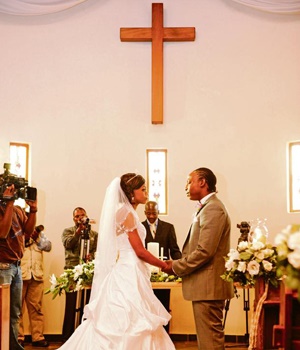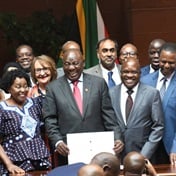
Sometimes fighting a one-sided battle can still equal victory, writes Milisuthando Bongela
The sign in the store read: “Unaccompanied children will be sold into slavery.” And, according to one of the two black pharmacists, it had been there for 60 years, so I should not have a problem with it. I’ve been going to that pharmacy for years. I have stood before that sign countless times.
It is the pride of its authors by virtue of its positioning in the unavoidable middle of the small shop. I had not rehearsed my reaction when I asked the room: “What if the sign read: ‘All unaccompanied children will be sent to concentration camps?’”
I was eager for the sexagenarian white-male owner of the pharmacy to come down from his dispensary fort to respond to my disturbing of the peace, but his see-no-evil-hear-no-evil silence gave his employees the licence to avoid eye contact with me, as if this had happened before – which it had, because a friend of mine had performed the very same scene there.
...
My cousin had been going to his church every day for at least 10 years, much to the chagrin of some family members. He is bright, earnest and warm. As a lawyer, he has an intimate relationship with rules. He has never been alone with his fiancée, a kind, beautiful corporate professional who, like my cousin, is a youth leader at the same church. The church does not allow its members to date in the American sense, so they have never been to the movies or had dinner together, or even driven in the same car.
The church decided to call off the wedding because a member of the congregation said she saw a box of cigarettes inside the fiancée’s purse, five months before this “emergency meeting”.
With no proof, the church leaders came to report this matter to my family with hopes of persuading my mother to discourage the marriage until the fiancée was “rehabilitated”. My cousin sat in the meeting, or rather, wilted into the chair in silence. His sedentary position on the matter was perplexing to my mother, who was listening with a religious respect for the clergy.
“Well, does she smoke?” she asked my cousin immediately afterwards.
“No, Dabawo,” he said.
“Call this girl and ask her where she is,” my mother growled. When his fiancée picked up his call, she was 200km away on the N2, teary, alone and on her way to tell her family the bad news. She refused my cousin’s pleas for her to come back because she was certain my family would finish what the clergy people had started. My mother grabbed the phone.
“Please come back sweetie; we are on your side,” she said.
...
My own confrontation at the Norwood pharmacy was remarkably less dramatic. At best, it was awkward and, at worst, infuriatingly lukewarm, because my opponents were playing dead, unsure of what to do with me. Their token spokesperson, who stood in front of them symbolically shielding them, was confused about why I was asking questions that didn’t have answers. I left the place dissatisfied, as if a waiter had taken my drink before I had the last sip. I sat in my car feeling tired, foolish and bombastic, crying tears of structural anger. As my breathing stabilised, I felt relief and triumph because I had at least responded to the provocation.
...
My cousin’s fiancée, who had never met my mother, arrived at the doorstep, her face twisted by her tears. My mother embraced her and, imagining her own daughters, held her until the relief settled.
For the first time in their unorthodox courtship, they were afforded privacy when my mother instructed them to go into a room and come out when they had made a decision about what they wanted to do. When they emerged an hour later, there were two sets of red eyes looking back at my mother.
“My child,” she asked, “do you want to marry this girl?”
“Ewe, Dabawo,” he said.
“And you my dear, do you want to marry him?”
“Yes, Mama. We want to get married.”
“Then you better tell those church people that this wedding is going to happen with or without them.”
When my sister was relaying this story to me days later, I revelled in the confidence that comes with identifying an unjust adversary and knowing that the battle against their domination will happen with or without their participation.




 Publications
Publications
 Partners
Partners








